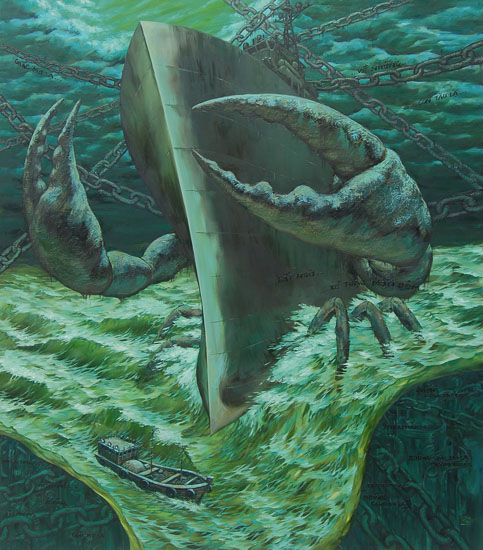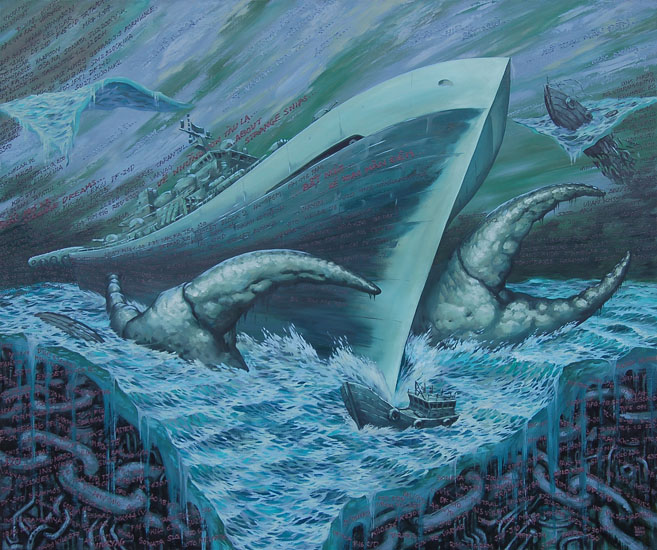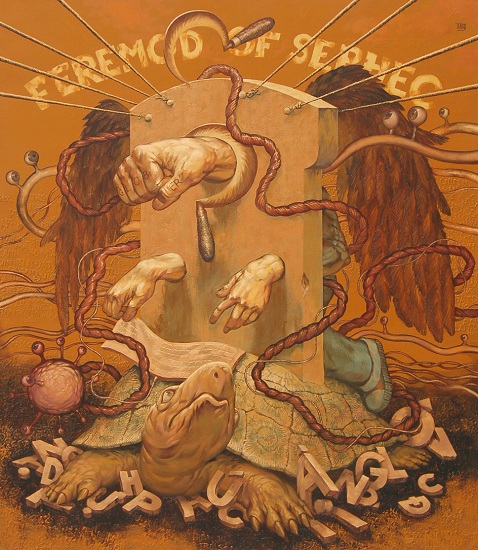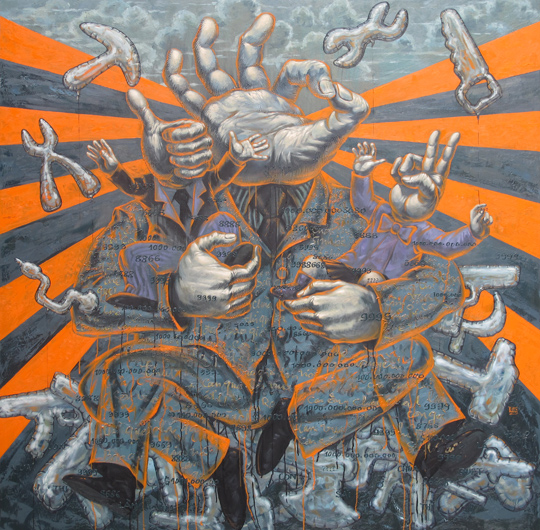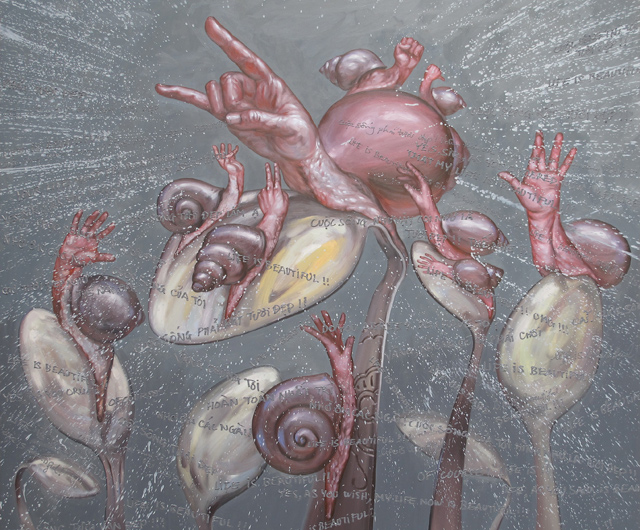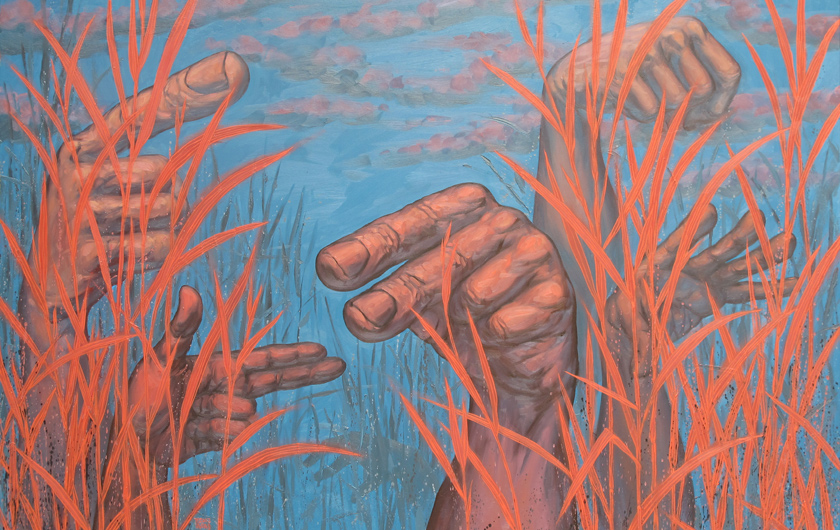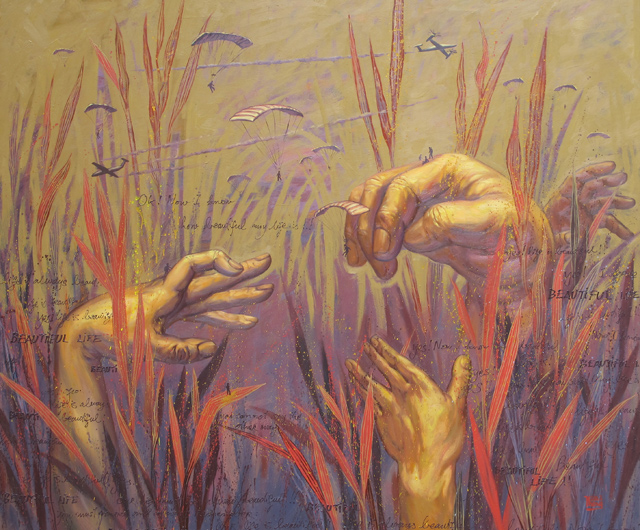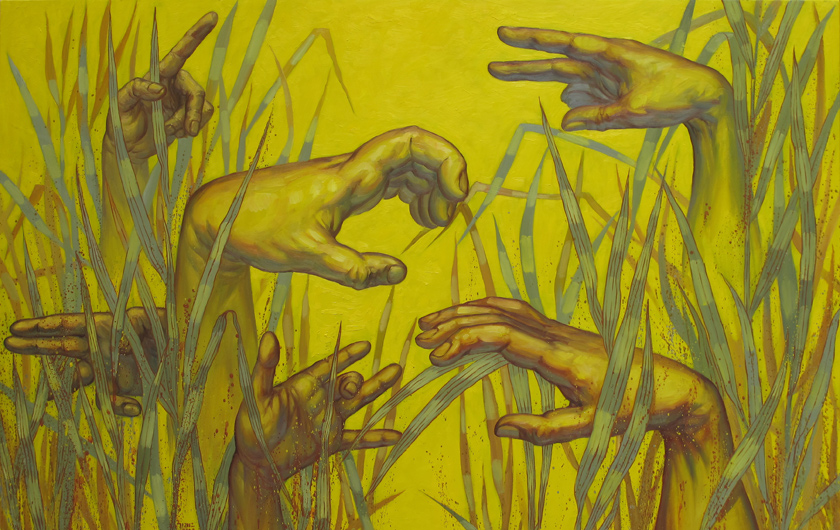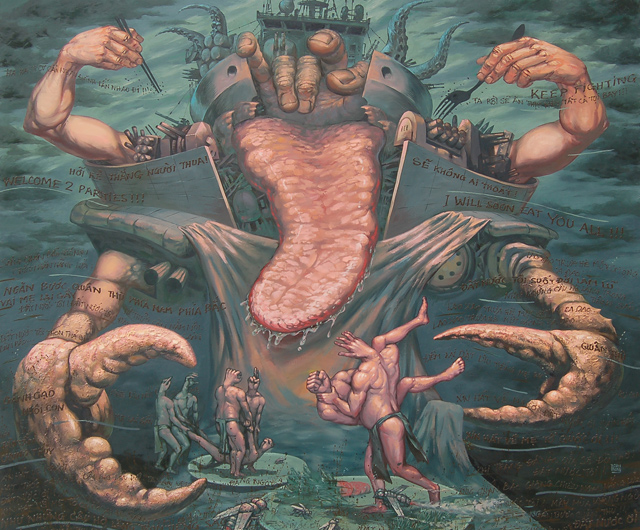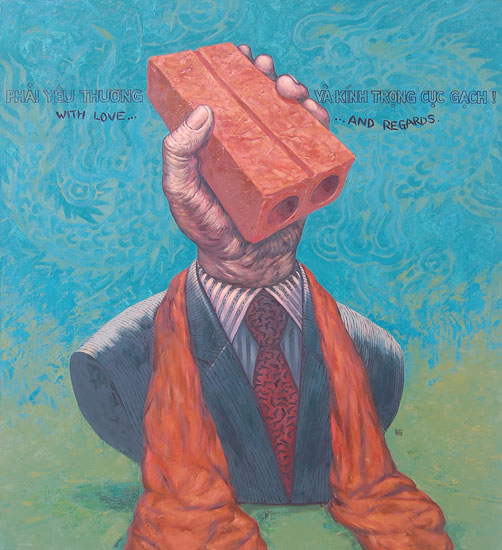Hands
Opening Reception: 20 Oct 2012, 6:00 - 9:00 pm
20 Oct - 13 Nov 2012
âPham Huy Thong is a visual artist from Vietnam whose art focuses on political and social commentary.â This seemingly generic description in his own words in fact says a great deal about Thong the artist and the exciting novelty of the work that he is doing in the less than unrestricted context in which he operates. Thong combines a unique upbringing and a felicitous collection of talents all of which he brings to bear in his paintings. While still chronologically…
âPham Huy Thong is a visual artist from Vietnam whose art focuses on political and social commentary.â This seemingly generic description in his own words in fact says a great deal about Thong the artist and the exciting novelty of the work that he is doing in the less than unrestricted context in which he operates. Thong combines a unique upbringing and a felicitous collection of talents all of which he brings to bear in his paintings. While still chronologically…
“Pham Huy Thong is a visual artist from Vietnam whose art focuses on political and social commentary.” This seemingly generic description in his own words in fact says a great deal about Thong the artist and the exciting novelty of the work that he is doing in the less than unrestricted context in which he operates. Thong combines a unique upbringing and a felicitous collection of talents all of which he brings to bear in his paintings. While still chronologically correct to call Thong a “young” artist, the Hands series is clearly the product of a mature artist working with great intensity of purpose, skill and ambition.
Thong was born in 1981 to journalist parents who often hosted gatherings of friends that included freewheeling discussions of the social and political issues of the day. The artist cites exposure from an early age to this open style of discourse as a paramount factor in his own decision to engage with social and political issues in his art. The rather unorthodox encouragement Thong received from his Hanoian parents to be wary of orthodoxy and to think for himself contributed greatly to the creation of his independent and informed point of view and his critical eye.
Thong’s decision to replace the faces of the subjects in his latest series with hands was driven in part by a desire to make them universal, anonymous beings without individuality or nationality. There is no potential to confuse the subjects in the Hands paintings with particular people through random resemblance. There is also no basis for imputing a specific nationality – Vietnamese, Chinese, Japanese, Phillipino – on these faceless humans based on the shape or tilt of their eyes.
By “de-facing” his subjects, Thong seeks to foster conditions for an open dialogue between the viewer and his paintings. Among the reasons for choosing hands was Thong’s conception of them as uniquely expressive appendages. Thong finds that hands exhibit relatively little difference in appearance between individuals and yet possess a great capacity to express a range of emotions – anger, power, fear, happiness – and meaning through the symbols and gestures they can be used to form.
Hands is the succeeding exhibition to Thong’s Dong Bao (Compatriots) (2009-2010) series which was constructed around the concept of the Vietnamese people as all emanating from the womb of the goddess Au Co as told in the country’s creation myth. With such a construct, the Dong Bao paintings logically focused on concerns that were primarily specific to the people of Vietnam. With the Hands series, the commentary in Thong’s paintings has gone from the national to the regional and, in many instances, to the universal.
One regional issue that animates Thong and which appears in several of the Hands works, is the current dispute between China and its Southeast Asian neighbors over island territories in the South China Sea. In paintings like Strange Dream 1 and Strange Dream 2, Thong depicts giant warships with large claws, powering through stormy seas, as they plow menacingly towards tiny fishing boats that are caught in their path. His aim is to express his empathy for the innocent individuals who are not parties to the dispute, but who are the first to pay the price for the aggressive posturing being undertaken by the nations involved.
This same concern for the plight of “ordinary” people manifests in the painting Heavy Ocean, which depicts a “de-faced” man carrying a heavy warship on his shoulders. The allusion is to the burden placed on the taxpayers of who must ultimately pay the costs of the arms race the South China Sea disputes are fueling. To underscore the point, Thong has written the names of many of the ships, aircraft and weapons systems that are involved onto the painting. Although Thong admits to natural feelings of patriotism, his work is not jingoistic. The straining subject in Heavy Ocean could be from any of the countries participating in the ongoing dispute. All involved will bear the costs regardless of nationality.
Thong demonstrates the breadth of his interest and intellect by taking on issues of globalization, Westernization, consumerism and development aid, among others, in the meticulously conceived and created works of Hands. In Money-Go-Round, a large papa hand feeds cash to hungry little outstretched baby hands arrayed around a nest. Thong is addressing the question of the mixed blessing of development aid where money is ostensibly given or invested in a country only to see the majority of it passing back to the donor country with questionable ultimate impact on the recipient nation. In the painting, the large hand clutches the biggest bills tightly while smaller dollar crumbs fall towards but do not actually reach the needy little hands grasping out hungrily from the nest.
A Hanoi native and resident, Thong speaks admiringly of the artist Le Quang Ha who pioneered the idea of using his art to impart important messages in the generation before Thong. Thong’s slightly older contemporaries Nguyen Manh Hung and Ha Manh Thang have also inspired him through their ability to address important societal issues in their own personal styles. He also speaks of the influence that contemporary Chinese artists – most prominently Cynical Realist artist Yue Minjun – have had on his work. Like Yue Minjun, Thong uses his paintings to comment on contemporary social and political issues that are important to his country in an open and witty, if somewhat less whimsical, way.
Craig Thomas and Xuan Mai Ardia
Read more
Read less

